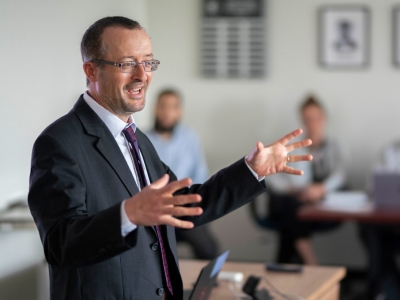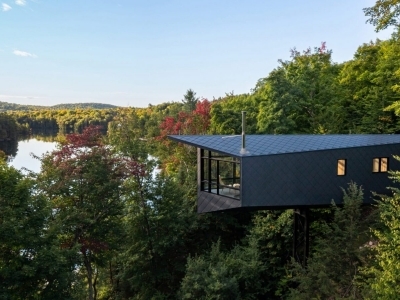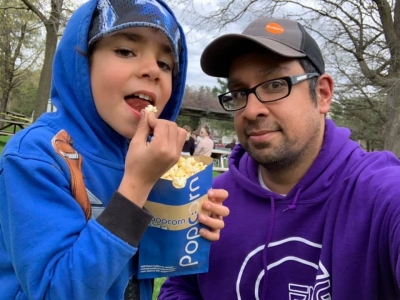By Leah Coppella
Kelsey Doerksen (BEng/17) has always wanted to go to space. Her time at Carleton University as a dedicated undergrad, making connections with the wider Carleton community, made that dream of shooting for the stars a little more reachable.
Forging forward on a fantastic career in space systems engineering, Doerksen has made her mark as a Software Engineering Intern at NASA’s Jet Propulsion Lab, as well as a Space Weather & Space Debris Researcher and summer course teacher at l’Observatoire de Paris, the oldest and one of the biggest observatories in the world.
While pursuing her undergraduate degree in Aerospace Engineering at Carleton, Doerksen co-created and led the Carleton Planetary Robotics Team, belonged to the Carleton Student Engineering Society, Carleton Mechanical and Aerospace Society, and Carleton Engineering Musical. She also worked as an Instructor and Program Coordinator for specialized STEM-based summer camps for young women and girls run by the Faculty of Engineering and Design’s not-for-profit youth outreach organization, Virtual Ventures.
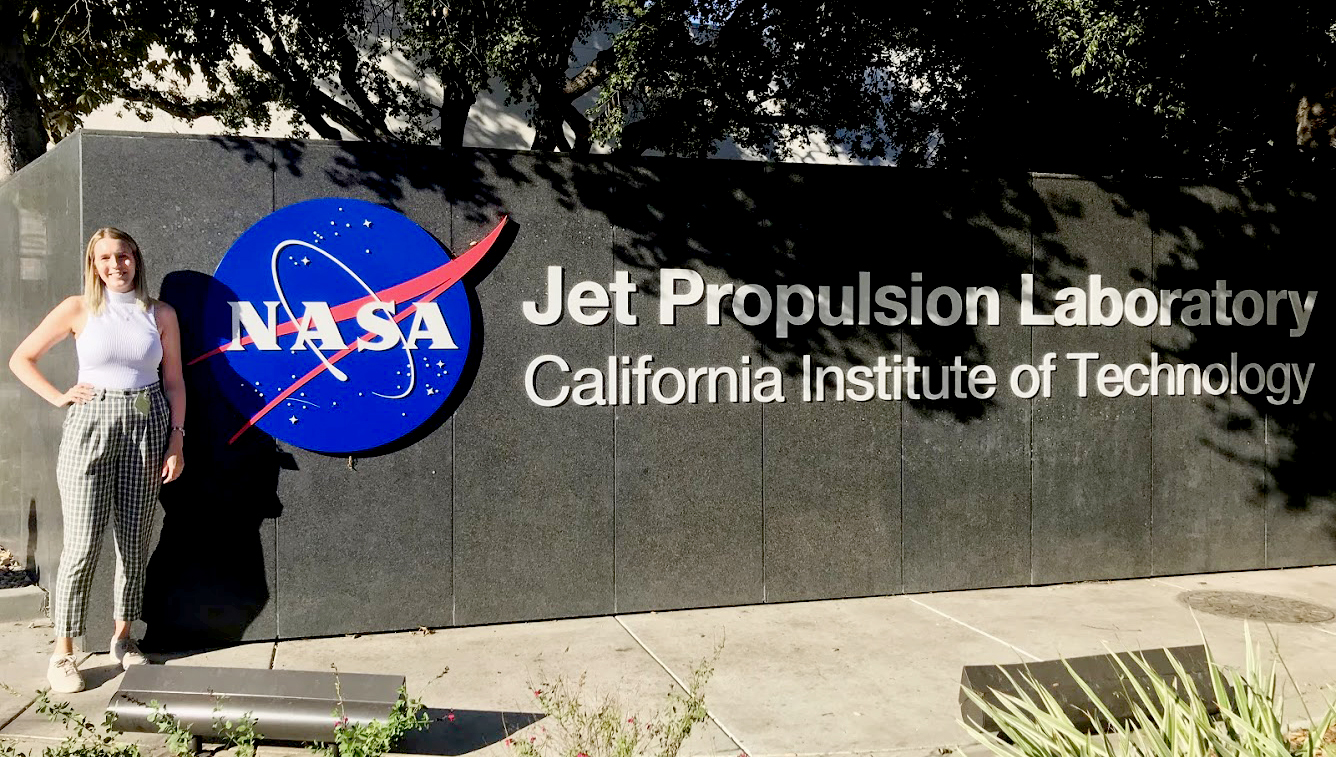
Aerospace Engineering alumna Kelsey Doerksen (BEng/17) at NASA’s Jet Propulsion Lab (JPL) during her internship in 2019.
Doerksen completed her Master’s of Engineering Science in Electrical & Computer Engineering in the collaborative Planetary Science and Exploration Program at Western University, while working as a Visiting Research Intern in Machine Learning and Instrument Autonomy, at NASA’s Jet Propulsion Laboratory.
Just last week, Doerksen accepted an offer to the Autonomous Intelligent Machines and Systems Centre for Doctoral Training Program at the University of Oxford with a full scholarship.
The Faculty of Engineering and Design (FED) sat down with Doerksen to talk humble beginnings, space and life here on Earth.
FED: What pulled you towards Carleton University’s engineering program?
Kelsey Doerksen (KD): When I was growing up, I knew that I always wanted to be an astronaut. I started looking into the best programs for a path towards that goal and figured aerospace engineering would be best. I don’t have any family in the STEM field, per se, but I thought that would be a good choice for what I wanted to do. Carleton University was number one, and was one of the few programs that offered aerospace engineering at the undergraduate level.
FED: What is one of your favourite memories from your time at Carleton?
KD: I would say my last time participating in EngFrosh. I was one of the lead facilitators, along with two of my good friends. Participating in that made my final year a lot more memorable and fulfilling. I was also able to meet all of the incoming new students, so I was able to mentor them and I still keep in touch with a lot of those students who were first years, today.
FED: You’ve classified the work you do as “using space to help life on Earth”. What does that mean to you?
KD: I really wanted a career where I could use space technology because I am just very passionate about it and find it super cool. My aspirations of being an astronaut is what keeps me passionate in my research, but I also wanted to cater my career towards having an impact here on Earth and for society, in general. I want the everyday person to be able to be positively impacted by the work I am doing. In my current position as a Space Systems Engineer in Satellite Operations, I operate the Dove satellite constellation My work there means I’m helping maintain and operate the satellites whose imagery can be used to monitor deforestation or analyze the impacts of climate change or forest fires. So my career goal is to be able to use space technology in a way that is fulfilling because I can give back to society.
FED: You interned at NASA’s Jet Propulsion Lab where you worked on robotic assembly and machine learning for planetary rover applications. What was that like?
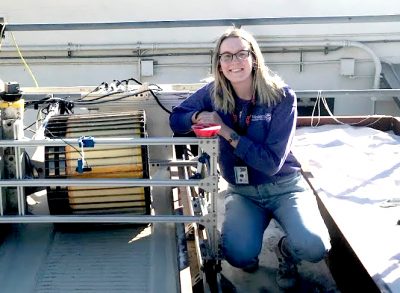
Doerksen working on NASA’s Barefoot Rover project during her internship at JPL.
KD: During my time at NASA JPL, I worked on the Barefoot Rover project. Essentially what this project is, is a rover wheel that utilizes machine learning to be able to detect the type of soil the rover is driving on top of, as well as detect subsurface rocks, and be used as an early-warning system of wheel slippage, so that rovers don’t get stuck in the regolith on Mars and the Moon. It was a really great experience, I was lucky enough to work on building the rover wheel and sensor system, to gathering the data, and using that data to develop machine learning models to detect wheel slippage. The goal of the project is to use rover wheels that are “smart” enough to make decisions for themselves as to where it is and is not safe to drive, without needing human input.
FED: What has been the biggest challenge you’ve faced in your path as a space systems engineer?
KD: The first would have to be from a financial perspective. I had to pay my way through school through loans, part-time jobs during the year and full-time work in the summer. It is always hard to juggle school work, extracurriculars, as well as funding your studies, no matter what program you’re in.
Another challenge would be my experience with imposter syndrome. Questions like: Am I good enough to be successful in this program? Or am I going to get this job? There is a lot of self-doubt, so you need to be confident in your abilities. I think confidence is something that comes with both and time and experience.
FED: How do you think Carleton helped you get to where you are today?
KD: I think I noticed how much Carleton had developed me into the engineer that I am today, when I started to go to conferences and meet with students outside of the university. It’s then that I realized how lucky I was to have the supportive environment that Carleton provides. Carleton always gave me support in starting new clubs or getting involved outside of the classroom. For example, the Carleton Planetary Robotics Team didn’t exist until myself and classmates came up with the idea, and Carleton was willing to fund it. Even though we had never previously competed in a competition, they set aside funds and supported us to go to international competitions. That’s something that a lot of students in other universities did not have. The opportunities Carleton created, in valuing extracurriculars, enhanced my overall experience as an undergrad.
FED: Where do you see yourself 5 years from now?
KD: I’ll be joining the Autonomous Intelligent Machines and Systems Centre for Doctoral Training Program at the University of Oxford with a full scholarship in September. The research I’ll be doing there involves satellite imagery with machine learning to forecast or predict the impacts of climate change. Eventually, I’d love to move back to Canada and be able to be someone who interfaces between technology and the policy space with respect to these technologies. This tech could be applied to disaster management and resilience planning. I see myself being able to act as someone with a deep technical understanding of this tech with the knowledge of how to use this in everyday, environmental policy and or planning.
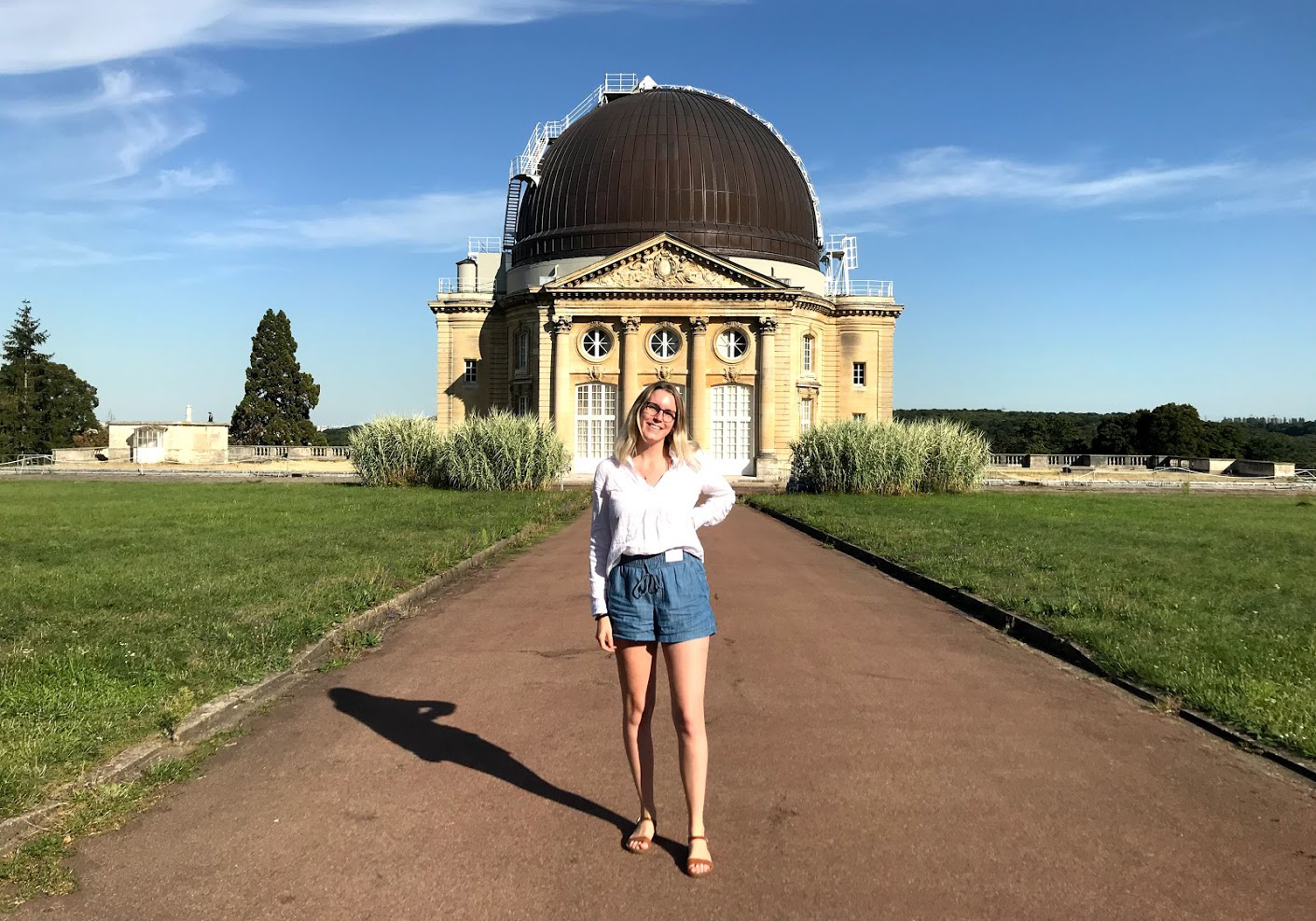
Doerksen at l’Observatoire de Paris.
FED: Carleton recently announced an all-new Women in Engineering and Information Technology (WiE&IT) Program that, in part, looks to help women in STEM overcome systemic barriers when entering the workforce. Why are committed actions like these, that support women in STEM, meaningful to you?
KD: I think it is incredibly important to have a safe and welcoming community where you can be yourself and feel supported. Engineering is not easy, and it is crucial to have mentorship and guidance to be successful in any field of STEM. I think that Carleton’s WiE&IT Program is a fantastic step in the right direction in facilitating opportunities for young women to gain the necessary skills to excel in their fields and build relationships with mentors that will create life-long impacts. I know that I wouldn’t be where I am today without the support of my family, friends, mentors and colleagues, and I’m extremely proud of Carleton for launching this initiative.
FED: Are there any women mentors that supported you at Carleton or throughout your career?
KD: I am incredibly lucky to have a fantastic manager and mentor, Deanna Farago, at Planet. She is the Engineering Manager for the Satellite Operations team and has been supportive of my goals and career aspirations since I began there. I am so appreciative to have someone like her championing for me, and especially for her encouragement and support throughout my PhD application process.
FED: What advice do you have for future Carleton engineering grads?
KD: Try to be as involved as much as you can and really make the most of your time at Carleton. If something like a club doesn’t exist yet, create it yourself! Really lean on the network you have built at Carleton, as well as the friendships and the wider Carleton community. You never know where someone might end up, and that strong network will help you be even more successful. Also, you may find that one day you’ll be able to help others out as well! I’m always keeping up with all my Carleton relationships.
FED: You want to go to space one day. Which astronaut do you look up to?
KD: I think every Canadian aspiring to go to space someday has a similar sentiment, but definitely Chris Hadfield. Not only is he a huge inspiration in being the former commander of the International Space Station, he is also committed to science communication and outreach which is incredibly important in getting young people involved and excited about space.
Wednesday, March 24, 2021 in Aerospace, Alumni, Experiential Learning, Virtual Ventures, Women in Engineering
Share: Twitter, Facebook
